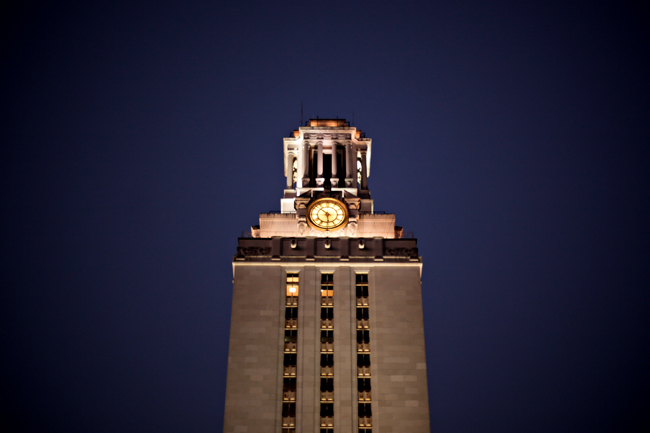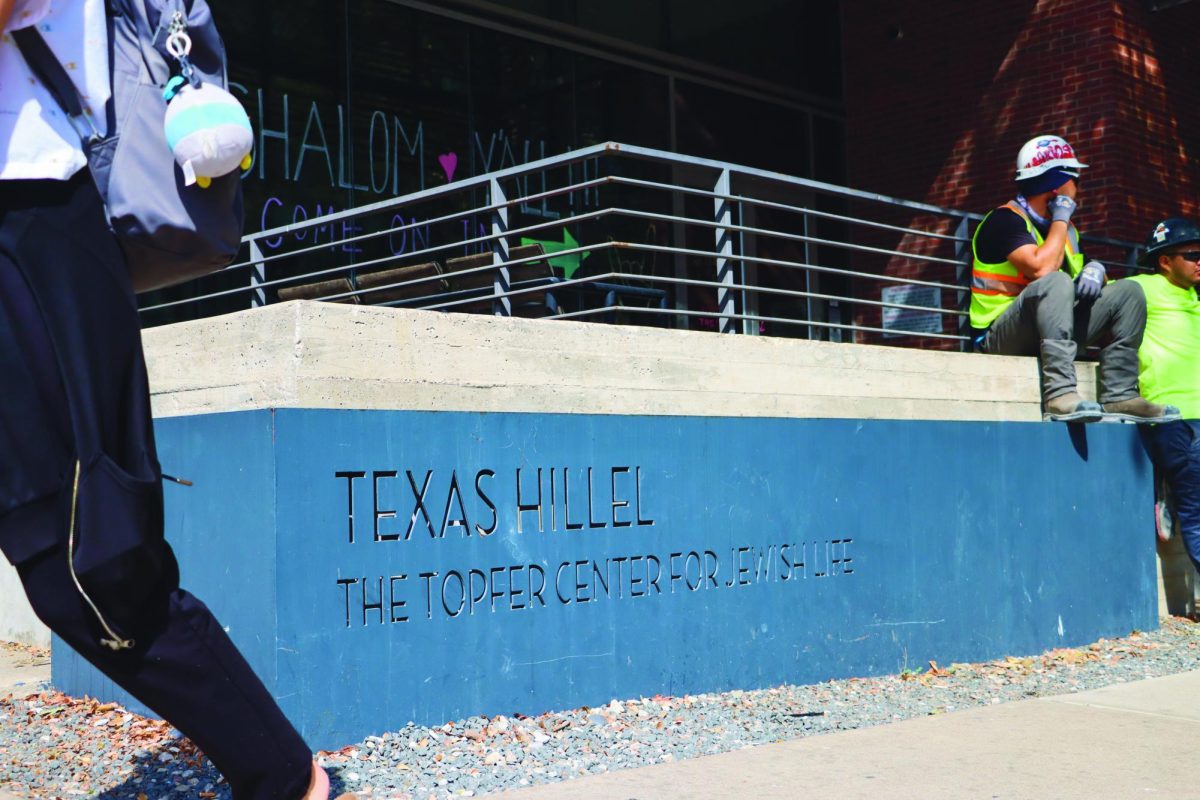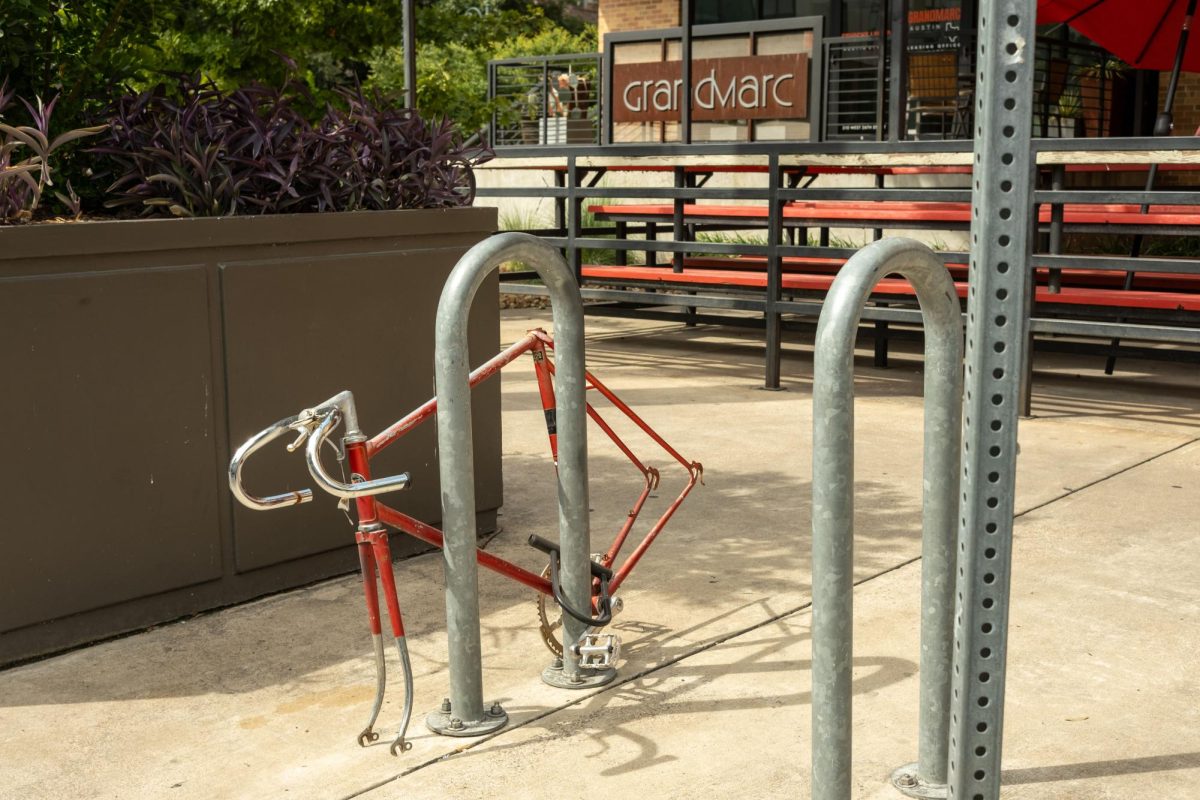The following timeline is the series of events leading up to the trial of Meechaiel Criner, according to his arrest affidavit and reporting from KXAN, KVUE, the Austin American-Statesman and The Daily Texan.
April 3rd, 2016, 9:20 p.m.: Suspect seen in the area
Surveillance video shows a male suspect riding a red or pink bicycle try to open a van near the Liberal Arts building. After looking around the area, he gets back on the bike and leaves, according to the arrest affidavit.
April 3, 2016, 9:30 p.m.: Haruka Weiser leaves Drama Building
Dance freshman Haruka Weiser leaves the F. Loren Drama Building after her last class and heads to Prather Hall. Weiser calls her roommate and tells her she is on her way back, according to the arrest affidavit.
April 3, 2016, 9:38 p.m.: Suspect returns to area and begins to follow female
The suspect returns to the van on his bike. Then, he sees a female dressed in all black walking toward the Etter-Harbin Alumni Center, according to the arrest affidavit.
According to the arrest affidavit, as she passes the suspect he puts the bicycle’s kickstand down, pulls out a shiny rigid object and begins to follow her.
April 3, 2016, 11:47 p.m.: Suspect seen later on video
Surveillance video shows the suspect again walking the same bike down East 23rd Street with an apparent injury to his left leg and a duffel bag not previously seen on video.
April 4, 2016, 8:21 a.m.: Meechaiel Criner picked up by police at scene of a fire
Firefighters were dispatched to a call at 2911 Medical Arts St. The firefighters find a young male, who says he is 17 and homeless, burning items at an abandoned building, according to the affidavit.
When the Austin Police Department arrives, they identify the person as Meechaiel Criner and transport him and what he states are his belongings to LifeWorks, a local homeless shelter. They also take custody of his bike, which is similar to the one seen in the surveillance video, according to the affidavit.
April 4, 2016, 11:02 a.m.: UT Police receive missing person report
According to the affidavit, the UT Police Department receive a missing person report after Weiser does not show up to her morning classes.
April 5, 2016, 9:45 a.m.: Police find Haruka Weiser behind Alumni Center
UTPD canvasses the area Weiser’s friends said she was known to walk. UTPD notifies APD after discovering the remains of a victim with obvious trauma, later identified as Weiser, behind the alumni center, according to the affidavit.
April 5, 2016, 11:29 a.m.: University Police Inform Students of Body Found on Campus
UTPD alerts students that a body has been found near the alumni center and the death is being investigated as a homicide.
April 7, 2016, 11:37 a.m.: Fenves confirms identity of Weiser
In an email to the student body, Fenves confirms Weiser was the victim of an on-campus homicide.
April 7, 2016, 2:00 p.m.: Police Release Surveillance Video
During a news conference, APD Assistant Chief Troy Gay releases part of a surveillance video showing a suspect and asks for the public's help identifying him.
April 7, 2016, 4:08 p.m.: Austin Fire Department tells investigators about earlier fire call
Austin Fire Department Capt. David Leonard calls the APD Homicide Unit and tells them about the fire at 2911 Medical Arts St. and the confiscated bike, according to the affidavit.
April 7, 2016: Weiser’s friends identify her belongings
One of Weiser’s friends identifies the blue duffle bag seen in the surveillance footage as Weiser’s and says it was in her possession when she left the dance building, according to the affidavit.
April 7, 2016: A detective returns to the scene of the fire
According to the affidavit, a detective locates a small Doc Martin, a burned notebook with college-level coursework and a black jacket identical to one seen on surveillance footage at the scene of the fire.
April 7, 2016, 5:20 p.m.: Police locate Criner at LifeWorks and detain him
After locating him at Lifeworks, officers detain Criner at APD’s Homicide Unit for suspected tampering with evidence, according to the affidavit.
April 7, 2016: Police obtain search warrant for Criner’s possessions
According to the affidavit, officers find shoes identical to ones the suspect is observed wearing on the surveillance footage and a Macbook with a Portland sticker, which Weiser’s family had previously told police about.
April 8, 2016: Police charge Criner with first-degree murder
Judge Brenda Kennedy issues an arrest affidavit for Criner in connection to the murder of Weiser. In a later press conference, APD announces they have charged Criner with first-degree felony murder and that they have him in custody.
June 8, 2016: Criner is indicted for Weiser’s murder
A Travis County grand jury indicts Criner on an capital murder charge for the death of Weiser. Criner’s indictment accused him of multiple charges, including sexual assault, attempted kidnapping and robbery.
September 22, 2016: Judge sets trial date
Judge David Wahlberg officially sets Criner’s trial date for March 27, 2017.
Fall 2016 – Summer 2017: DNA processing continues to delay trial
Attorneys for both the state and defense await DNA to be processed for the case, causing the trial date to be pushed further back.
Note: In June 2016, APD’s Forensics lab was closed due to untrained staff. The Texas Department of Public Safety then began processing about 20 DNA samples from APD every month, which caused delays for multiple court cases, including Criner’s.
February 12, 2018: Judge reschedules trial date
Wahlberg reschedules the trial for July 9, 2018 because of scheduling conflicts and more DNA delays.
June 20, 2018: Judge dismisses DNA evidence in Haruka Weiser murder case
After two days of pre-trial hearings discussing the validity of the DNA testing, Wahlberg dismisses the majority of the DNA evidence in the case, ruling DPS improperly analyzed the samples.
July 2, 2018: Judge limits trial length
The judge for Criner’s case limits the trial length to two weeks, due to another trial scheduled to begin in his courtroom.
The trial will take place from July 9 to July 20. The first two to three days will involve jury selection, before the state begins to present their evidence. Criner could face life in prison with the possibility of parole in 40 years, if convicted.





















